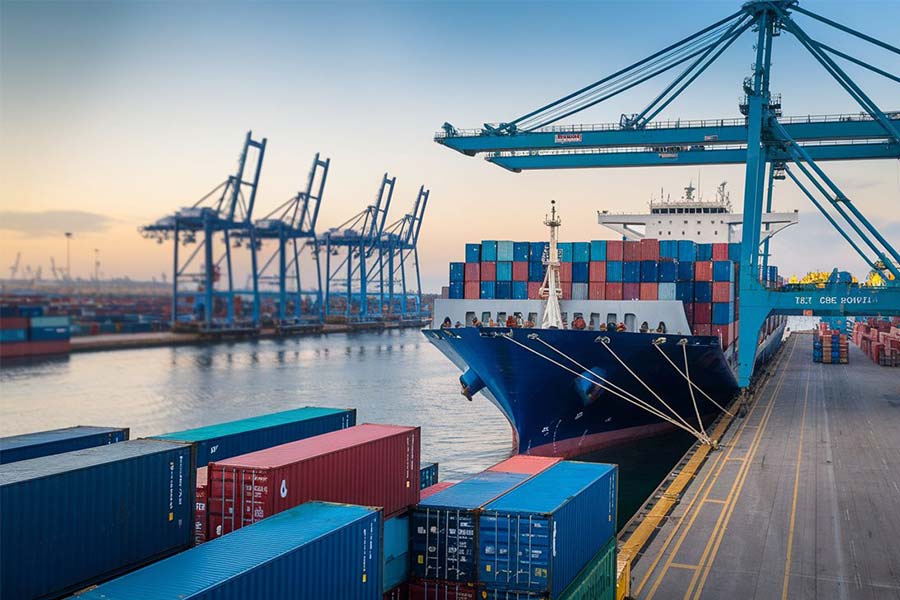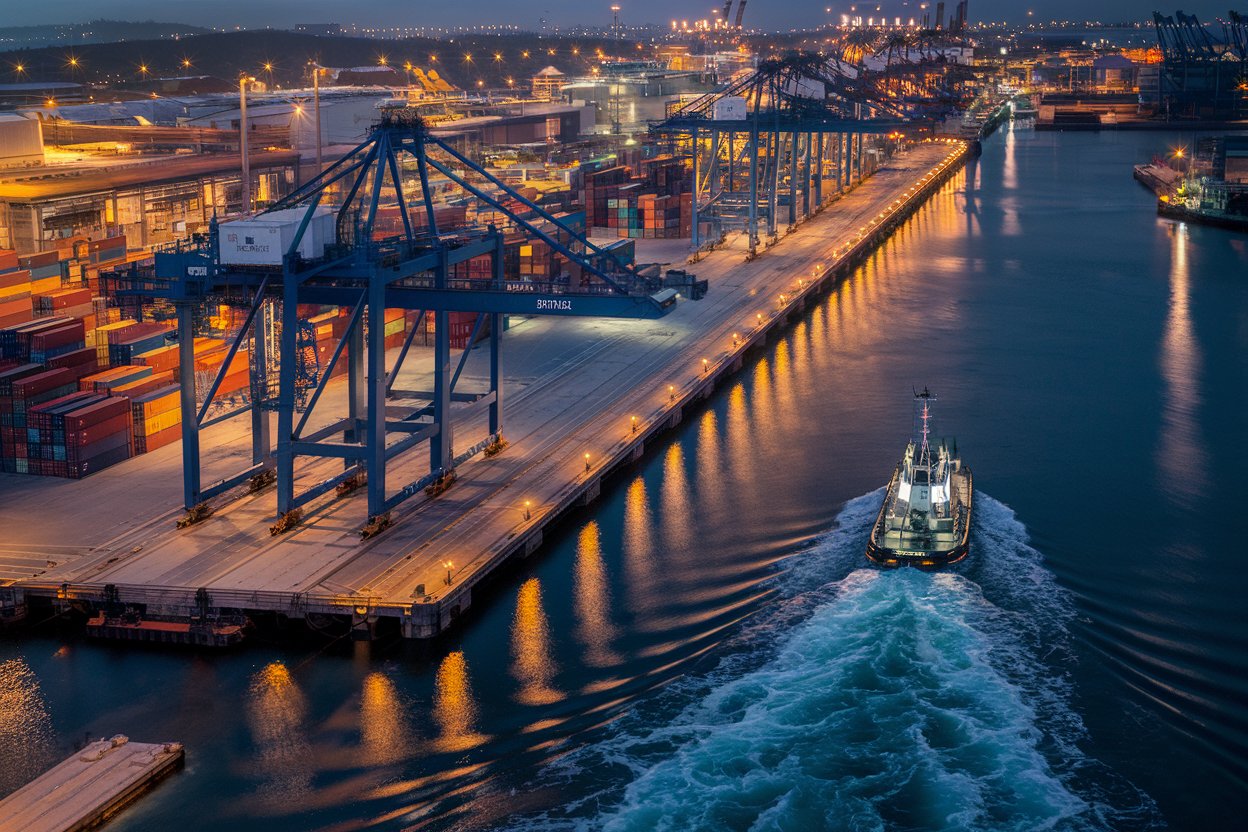- Shanghai Zhongshen International Trade Co., Ltd. - Two decades of trade agency expertise.
- Service Hotline: 139 1787 2118

Introduction
Against the backdrop of a globalized economy, importing advanced food processing machinery from Italy holds significant importance in enhancing the competitiveness of food production enterprises. However, the import process involves numerous complex procedures, such as documentation handling, logistics arrangements,FX Settlement Agencyas well as product certifications. This article will provide a comprehensive analysis of the key points for importing food processing machinery from Italy.
Professional document processing and logistics arrangement
Importing food processing machinery requires accurate and timely documentation processing as a key factor. First is the commercial invoice, which must detail the machinery's specifications, model, price, and other information, serving as a crucial basis for customs valuation and taxation. The packing list is also indispensable, clearly listing the packaging conditions of each component of the machinery to facilitate customs inspection. The bill of lading serves as proof of ownership of the goods, ensuring safe transportation and smooth delivery.
Regarding logistics arrangements, it is necessary to select the appropriate transportation method based on the machinery's dimensions, weight, and delivery time requirements. For large-volume, heavy-weight food processing machinery,Maritime TransportationIt is usually an economical option. However, if time is of the essence,Air TransportationThis can meet the requirements for rapid delivery. During the shipping process, it is essential to choose a reliable shipping company, book cargo space in advance, and ensure the goods are loaded on time. Additionally, proper arrangements should be made for cargo loading and unloading as well as transportation routes to avoid unnecessary delays and costs.
Our company has extensive experience in document processing and logistics arrangements, ensuring the entire process is efficient and seamless. A professional documentation team meticulously reviews each document to ensure compliance with international trade standards and the customs requirements of the destination port. The logistics team maintains close collaboration with major shipping companies and airlines to provide clients with the most optimized logistics solutions.
Import situations in different markets
I. Pre - export Preparation
If the imported food processing machinery is ultimately sold in the Russian market, in addition to the conventional documentation and logistics processes, the foreign exchange settlement stage offers unique advantages. Our company provides VTB foreign exchange settlement convenience specifically for the Russian market. VTB is one of Russia's major banks, and through our collaboration with them, we can streamline the foreign exchange settlement process and accelerate fund transfers.
The foreign exchange settlement process generally works as follows: After the goods arrive at the Russian port and customs clearance is completed, the importer, with our assistance, submits relevant trade documents such as the bill of lading, commercial invoice, and packing list to VTB Bank. Upon verification and approval by VTB Bank, the foreign exchange will be converted into RMB at the agreed exchange rate and promptly paid to the exporter. This convenience not only saves time in foreign exchange settlement but also reduces the risks associated with exchange rate fluctuations.
Southeast Asian Market
Importing food processing machinery into the Southeast Asian market involves a relatively complex process, requiring a thorough understanding of local trade regulations and market characteristics. Taking Indonesia as an example, the first step is to complete the import registration by submitting documents such as the importer's business license and tax registration certificate. Additionally, the food processing machinery must comply with Indonesia's quality and safety standards, which may necessitate providing relevant product certifications.
Regarding documentation, in addition to the standard documents, it is also necessary to provideIt is recommended to verify through the following methods:The book serves as proof that the machinery originates from Italy, thereby qualifying for the corresponding tariff preferences. In terms of logistics, due to Indonesia's numerous islands, transportation methods need to be considered comprehensively. For customers on major islands, shipping can directly reach main ports; for some remote islands, it may be necessary to first ship to main ports and then transfer via inland waterway or land transport.
For the Southeast Asian market, we provide comprehensive solutions. From preliminary market research and understanding local regulations and standards to assisting clients with documentation preparation and logistics arrangements, we offer end-to-end support. For instance, we help clients connect with local inspection agencies to ensure products meet regional certification requirements. Additionally, we optimize logistics routes based on client needs and cargo characteristics to reduce transportation costs.
Challenges and Opportunities in the Current International Trade Landscape
The current international trade situation is complex and volatile, posing numerous challenges to importing food processing machinery from Italy. The rise of trade protectionism may lead some countries to increase tariffs or impose non-tariff barriers, thereby raising import costs and difficulties. For instance, certain nations might establish stringent technical standards and inspection and quarantine requirements for imported food processing machinery, prolonging customs clearance times.
However, there are also numerous opportunities. With the advancement of the Belt and Road Initiative, trade cooperation with countries along the routes continues to strengthen, creating broader prospects for import businesses. Meanwhile, the development of digital trade has made document processing and information communication more convenient and efficient. We can leverage e-commerce platforms to access market information more swiftly and expand customer resources.
In the face of challenges, importers need to closely monitor changes in trade policies across various countries and prepare response measures in advance. For instance, they can mitigate the cost pressures from tariff increases by optimizing supply chains. Additionally, leveraging digital tools can enhance the efficiency of trade processes to meet complex inspection and quarantine requirements.
Product Certification Services
Importing Italian food processing machinery, product certification is crucial. In the EU market, the CE certification serves as a passport for machinery to enter the market, proving that the product complies with relevant EU directives and harmonized standards. For exports to other countries and regions, compliance with local certification standards may also be required, such as UL certification in the United States.
Although our company does not directly handle certification services, we assist clients in the process. We have a professional team that is well-versed in the certification procedures and requirements of various countries, enabling us to provide detailed guidance to clients. For example, we help clients prepare the necessary documentation for certification, liaise with certification bodies, and track the progress of certification. This ensures that clients' food processing machinery can smoothly pass certification and enter the target market.
Conclusion
Importing food processing machinery from Italy involves numerous steps, whether it's document processing, logistics arrangements, or adapting to the characteristics and trade conditions of different markets—all of which require professional knowledge and experience. Our company leverages its expertise in document processing and logistics services, along with unique advantages tailored to various markets, to provide clients with comprehensive and efficient solutions.Import RepresentationServices. Assistance in product certification can also help customers smoothly resolve certification challenges, facilitating the successful development of import business.
Related Recommendations
? 2025. All Rights Reserved. Shanghai ICP No. 2023007705-2  PSB Record: Shanghai No.31011502009912
PSB Record: Shanghai No.31011502009912










